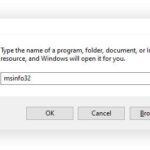Bloating, that uncomfortable sensation of fullness and tightness in your abdomen, is often caused by excess gas accumulation in your stomach or intestines. It’s a common experience, especially after meals, and while it usually subsides on its own, there are several effective strategies to speed up the process and find quick relief.
This article will explore easy-to-implement home remedies that can help you manage bloating and alleviate discomfort rapidly.
Quick and Effective Ways to Relieve Bloating
If you’re experiencing bloating and seeking fast relief, these methods can help to ease your discomfort and get you feeling better quickly.
1. Engage in Light Physical Activity: Take a Walk
A simple yet powerful remedy for bloating is physical activity, particularly walking. Movement encourages your digestive system to work more efficiently, helping to expel trapped gas and move stool through your intestines. This is especially beneficial if you are experiencing constipation, a common contributor to bloating. A short walk, even just around your neighborhood, can make a significant difference in relieving gas pressure and reducing bloating. The gentle motion helps stimulate intestinal contractions, facilitating the natural release of gas.
2. Practice Specific Yoga Poses for Gas Release
Certain yoga postures are designed to gently compress and stretch your abdominal area, which can encourage the release of built-up gas from your gastrointestinal (GI) tract. By positioning your body in specific ways, you can massage internal organs and promote intestinal movement, thus reducing bloating and discomfort.
Effective yoga poses for gas relief include:
- Child’s Pose (Balasana): This relaxing pose gently massages the abdominal organs.
- Happy Baby Pose (Ananda Balasana): This pose can help release tension in the hips and abdomen, aiding gas expulsion.
- Squats (Malasana): Squatting can help to open up the hips and abdominal area, facilitating the release of gas.
Incorporating these yoga poses into your routine when you feel bloated can provide quick and natural relief.
3. Consider Peppermint Oil Capsules
Peppermint oil capsules are a well-known natural remedy for indigestion and gas-related issues. Often marketed for individuals with Irritable Bowel Syndrome (IBS), their benefits extend to anyone experiencing bloating. Peppermint oil works by relaxing the smooth muscles of the intestines. This relaxation allows gas and stool to move more freely and effectively through your digestive system, thus alleviating bloating and associated discomfort.
When using peppermint oil capsules, it’s crucial to follow the dosage instructions provided on the product packaging. It’s also important to note that individuals prone to heartburn may need to avoid peppermint, as it can sometimes exacerbate symptoms.
4. Utilize Over-the-Counter Gas Relief Medications
Over-the-counter medications containing simethicone are readily available and designed to provide relief from gas and bloating. Simethicone works by helping to break down gas bubbles in the digestive tract, making it easier for your body to expel them. These medications are available in both pill and liquid forms.
Always adhere to the instructions on the product label when taking simethicone or any other medication. These medications can be a convenient and effective way to quickly reduce excess gas and bloating.
5. Perform a Gentle Abdominal Massage
Abdominal massage is a hands-on technique that can stimulate bowel movements and help release trapped gas. Massaging along the path of your large intestine is particularly effective. You can perform this massage yourself by following these steps:
- Begin by placing your hands just above your right hip bone.
- Using light pressure, rub in a circular motion upwards towards your right rib cage.
- Continue rubbing straight across your upper abdomen towards your left rib cage.
- Move slowly downwards towards your left hip bone.
- Repeat this sequence as needed.
Pay attention to your body during the massage. If you experience any pain, discontinue the massage immediately. This gentle technique can help to encourage intestinal motility and relieve bloating.
6. Explore the Potential of Essential Oils
Certain essential oils have shown promise in relieving bloating and abdominal discomfort. A study from 2016 indicated that a combination of fennel and curcumin essential oils could improve IBS symptoms, including bloating. The study involved individuals with mild-to-moderate IBS who reported improvements after using supplements containing these oils for 30 days.
However, it is crucial to exercise caution when considering essential oils. Never consume essential oils without consulting a healthcare professional first. Some formulations can be toxic if ingested, and they may interact with certain medications. Furthermore, the dosage and regulation of essential oils are not standardized, highlighting the importance of professional guidance.
7. Relax and Soak in a Warm Bath
Taking a warm bath is a soothing and relaxing way to alleviate bloating. The warmth of the water can help to relax your abdominal muscles, providing relief from soreness and tension. Additionally, relaxation itself plays a crucial role in digestive health. Stress can negatively impact the gastrointestinal tract, potentially worsening bloating. By reducing stress levels through a warm bath, you can help your GI tract function more effectively, which in turn may aid in reducing bloating.
Conclusion
Bloatedness is a common and often temporary condition that can be effectively managed with simple home remedies. From gentle exercise and specific yoga poses to abdominal massage and the potential use of peppermint oil or over-the-counter gas relief, numerous strategies can provide quick relief. Remember to listen to your body, practice these remedies gently, and consult a healthcare professional if bloating is persistent, severe, or accompanied by other concerning symptoms.
